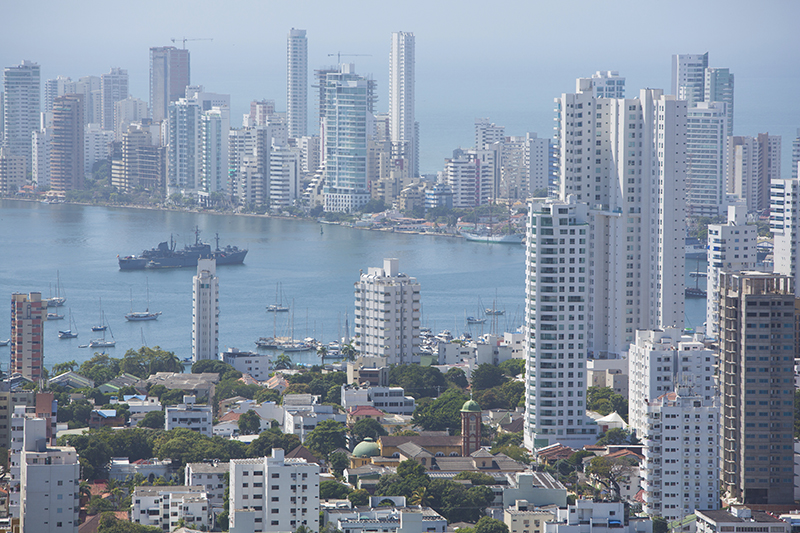The World Bank's mission in Colombia is not just about driving economic growth, but also about helping people to climb out of poverty and so provide the stability the country needs to attract investment and build a sustainable economy, the institution's Country Manager, Issam Abousleiman, said in an interview.

Speaking to The Worldfolio, Abousleiman explained that while the World Bank does provide financial support for the Colombia government’s main economic and investment policies, its role is not focused on growth alone.
“Growth is very important and we haven’t taken that out of the equation,” Abousleiman said. He added that the Bank is also concerned with “Growth, not only in the economic sense, but in having good quality education and educating as much of the population as you can. Having good transportation, good health care good infrastructure and general communications so that they can actually attract businesses and grow their economy.”
The World Bank currently has 17 active projects in Colombia, in a range of areas including agriculture, health, education, infrastructure and labor. The institution´s loans to Colombia have totaled $873 million so far this year, up from $600 million in 2013 although below the $1.180 billion in loans granted in 2010.
World Bank figures show that since 2008, the income of the poorest 40% of Colombia’s people has grown at about 6.6% a year, a faster rate that of the rest of the population. This, Abousleiman said, shows that “trickle-down” economics are in fact working for Colombia; however, they are only part of the picture. He said that about 70% of the reduction of poverty can be attributed to GDP growth, while the rest is due to social programs.
“Colombia has achieved a lot in the last few years in terms of bringing people out of poverty and into the middle class. But the biggest class today is actually the vulnerable people, those who have gone out of poverty and then might fall back into poverty if growth doesn’t continue and social programs are not there,” he said.
In its Doing Business Report for 2014, the World Bank attests to the great strides Colombia has made in attracting new investment and business. The bank classified Colombia as the best country to do business in Latin America in 2014, citing among other things the improvements in access to credit, contract enforcement and property registration.
No discussion of doing business in Colombia would be complete without reference to the country’s security problems. Five decades of violence between government forces, Marxist guerrillas, drug traffickers and paramilitary groups now appear to be coming to a close. Peace negotiations between the government and leftist FARC (Fuerzas Armadas Revolucionarias de Colombia) guerrillas were recently resumed following a brief hiatus caused by the kidnapping and subsequent release of an Army general.
With the end of Latin America’s longest-running armed conflict now in sight, the World Bank has been seeking ways to assure a peaceful aftermath.
“Security…should always be an important part of any government’s agenda to be able to not only attract foreign investors but to be able to have a standard of living for their own people,” Abousleiman said.
Abousleiman explained that the World Bank is currently involved in “a lot of issues related to post-conflict.” Among them is creating a system of reparations for war victims, which now total some 6 million in Colombia, of which 5 million are displaced people. This group, he said, requires a lot of attention because almost 90 percent of them live in poverty and two thirds in extreme poverty.
Edward Holland, Editor, The Worldfolio.
0 COMMENTS